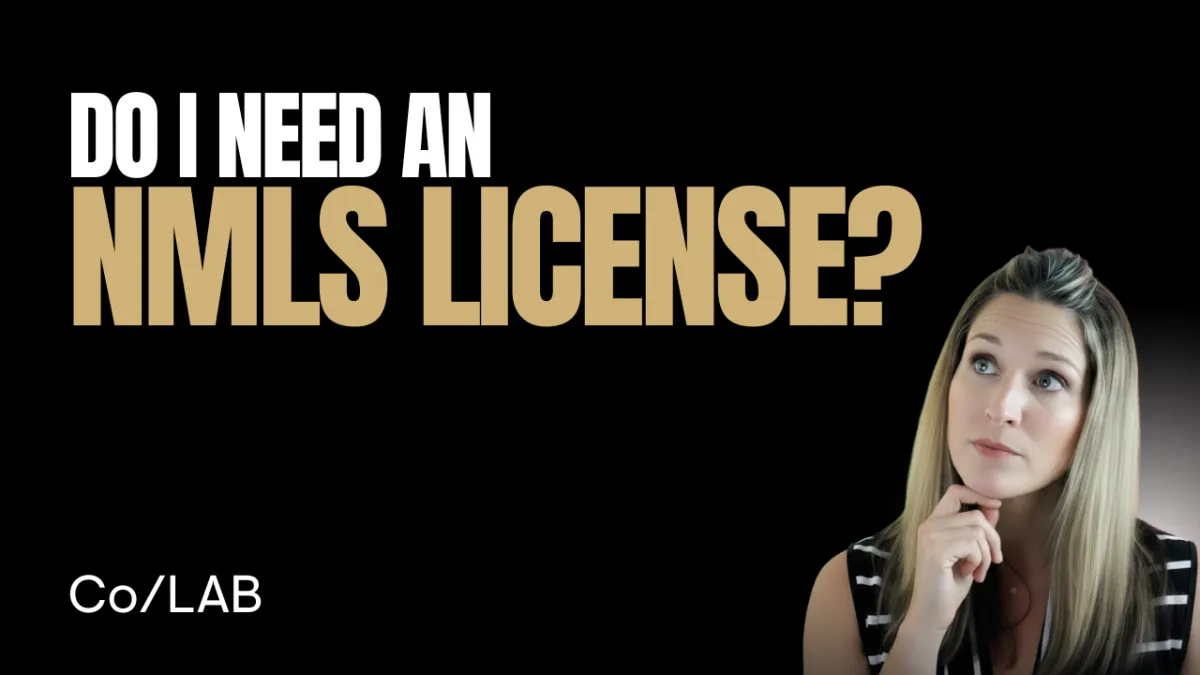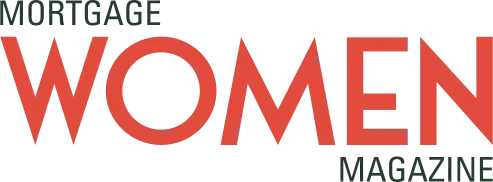BLOG
Mortgage, Real Estate, and Entrepreneurship


What Is an NMLS License? Complete Guide to Getting Licensed in Lending
What Is an NMLS License? The Complete Guide to Starting a Career in Lending
Have you ever thought about getting into the business of lending money — maybe as a loan officer, mortgage broker, or even a commercial loan broker — only to stumble across this acronym: NMLS? You’re not alone. Most people see those four letters and immediately wonder, “What is it, do I need one, and how do I get started?”
If that’s you, don’t worry — you’ve landed in the right place.
I’m Megan Marsh, and after 20 years in the mortgage industry, I’ve seen just about every type of lending career path out there. And I’m here to break down the NMLS license in plain English — what it is, who needs it, who doesn’t, and how to actually get licensed the right way so you can start building your business in lending.
What Does NMLS Stand For?
Let’s start at the beginning.
NMLS stands for Nationwide Mortgage Licensing System (sometimes called the National Mortgage Licensing System). It was created after the 2008 financial crisis — you know, the one that shook the entire housing market and exposed a lot of bad lending practices.
The government wanted more transparency, accountability, and professionalism in the mortgage industry. So in 2009, the NMLS system was officially launched to make sure everyone originating loans was properly educated, licensed, and tracked in a national database.
Think of it as the DMV of mortgage licensing — except instead of issuing driver’s licenses, it issues mortgage licenses that allow you to legally help consumers with home loans.
Why the NMLS License Exists (And Why It Matters)
Before the NMLS, the lending industry was like the Wild West.
People could originate loans with minimal oversight — and that lack of structure led to risky lending and, eventually, the 2008 crash.
So today, the NMLS license serves one major purpose:
👉 To protect consumers by ensuring that loan officers and brokers know what they’re doing and operate ethically.
In other words, if you’re helping someone buy a home, refinance a mortgage, or invest in residential real estate, you need to be licensed. It’s that simple.
Who Actually Needs an NMLS License?
This is where things start to get interesting — because not everyone in lending needs one. It depends on what type of loans you’re working with and what kind of company you’re affiliated with.
Let’s break it down by category:
1. FDIC Banks: The “Big Players”
If you work at a bank — like Wells Fargo, Chase, or Bank of America — you’ll technically get assigned an NMLS ID, but here’s the catch:
You don’t have to take the 20-hour pre-licensing class or the national exam.
That’s because banks are already heavily regulated under the FDIC and other banking laws. You can originate loans that the bank allows, as long as you’re registered.
Instead of the standard NMLS continuing education, you’ll complete bank-specific annual training.
2. Retail Lenders: The In-House Lenders
Retail lenders (sometimes called “direct lenders”) lend their own money.
If you work for one of these companies — and you’re dealing directly with consumers on residential mortgages — you’re going to need an active NMLS license.
Why? Because you’re working on loans tied to people’s homes, and that means you fall under the NMLS umbrella of regulated lending.
3. Mortgage Brokers: The Community Connectors
Mortgage brokers are typically small business owners or local companies that connect borrowers to multiple lenders.
They don’t lend their own money — they shop around for the best options for their clients.
But here’s where the rules tighten up. Both the company and the individual loan officers need their own NMLS licenses. Even each branch location has to be licensed.
So if you’re a loan officer working for a mortgage broker, you’ll need:
Your individual NMLS license
A licensed company to work under
(And if applicable) A licensed branch in the state you want to do business in
And here’s the kicker:
You can’t originate a loan in a state unless both you and your company are licensed there.
Most people start with one state and then expand. Want to do business in another? That’s a whole new round of applications, fees, and sometimes even extra training.
It sounds like a lot — and it is — but it’s what keeps the playing field fair and professional.
4. Commercial and Business Loan Brokers: The Hidden Opportunity
Now for the good news — and this might surprise you.
If you’re working with commercial loans or business lending, you usually don’t need an NMLS license.
In fact, in 43 states, you can broker or originate commercial loans without going through the NMLS process.
That means if you’re helping business owners secure financing for commercial properties, construction, or working capital, you can start faster — and often with less regulation.
The only caveat?
Some states (like California and Arizona) have stricter rules. Always double-check your specific state’s requirements before getting started.
The “Gray Zone” of Lending: Where It Gets Tricky
Here’s where a lot of people get tripped up — the gray zone between residential and commercial lending.
Let’s say you’re working with a 1–4 unit property (like a duplex or fourplex).
If that property is being purchased in an individual’s name, it’s considered residential, and you’ll need an NMLS license.
But if that same property is owned by an LLC and used for business purposes, it may fall under commercial lending rules — and no license is required.
That’s why I always tell people:
“It’s not just about what the property looks like — it’s about who’s buying it and how it’s being used.”
This gray zone is where both mortgage brokers and commercial brokers often operate, and it’s one reason why understanding the licensing laws is so critical before you start your business.
What Happens If You Work Without a License?
Let’s be honest — it’s tempting to think, “No one’s really checking, right?”
But trust me — states take this very seriously.
If you’re caught originating residential loans without a license, you could face:
Fines from thousands to hundreds of thousands of dollars
Cease-and-desist orders shutting down your business
Legal action or even criminal charges for knowingly violating the law
Being permanently barred from ever getting licensed in the future
So, it’s not worth the risk.
Get the right license from the start and set your business up for long-term success.
How Much Does It Cost to Get an NMLS License?
Now, let’s talk numbers.
If you’re planning to get licensed, here’s what you can expect to invest:

💡 Pro tip: If you’re opening your own mortgage brokerage, the company also needs its own license — so factor in those same state fees again for the business.
How Long Does It Take to Get Licensed?
The good news: it’s faster than you might think.
If you move quickly, you can complete your 20-hour course in a week or two.
Background checks and processing might take another couple of weeks.
Realistically, from start to finish:
1–2 months if you already have a personal NMLS license
2–3 months if you’re starting from scratch and licensing your company, too
That’s a short timeline considering you’re launching a whole new career — or even a business — in lending.
The Real Payoff: Building a Business, Not Just a Job
Here’s what I tell every aspiring loan officer or broker I mentor:
Getting your NMLS license isn’t just about compliance — it’s about ownership.
It’s your ticket to:
Build your own book of business
Earn residual income and referrals
Eventually open your own mortgage brokerage
Create financial freedom through entrepreneurship
The NMLS process might seem intimidating, but it’s a small price to pay for the ability to run your own show — legally, ethically, and profitably.
Final Thoughts: Should You Get an NMLS License?
If you plan to help people buy homes, refinance, or invest in real estate in their personal names — yes, you absolutely need an NMLS license.
If you plan to help business owners finance commercial properties or loans — you probably don’t (but always verify with your state).
And if you’re in that gray zone? My advice is simple:
Start getting licensed anyway. It’s your long-term insurance policy for growth.
The bottom line: whether you’re a loan officer, broker, or future entrepreneur, the NMLS license is your foundation for success in lending.
Ready to Start Your Mortgage Business Journey?
If you’re ready to take that next step — to not just work in lending but own your future in it — I’d love to help you get started.
At Co/LAB, we specialize in helping aspiring mortgage brokers and loan officers navigate licensing, launch their businesses, and scale successfully.
👉 Book a call today to start your mortgage business journey with the right guidance, systems, and support.
You’ve got this — and you don’t have to figure it out alone.
Megan Marsh
CEO/ FOUNDER of Co/LAB Broker Concierge
In Case You Missed Our Previous Blogs & YouTube Videos..
Read Here: How to Pass the NMLS Exam on Your First Try | Complete Guide 2025
Ready to kickstart your mortgage career? 💼 In this guide, we break down everything you need to know to pass the NMLS Exam on your first try. You’ll learn what’s on the test, how to study smart, the laws you need to master, and the best prep resources to use. Plus, Megan shares insider tips, test-day strategies, and answers to the most common NMLS questions so you can confidently earn your license and start building your mortgage business.
Read Here: 5 Proven Mortgage Broker Marketing Strategies to Generate More Leads
In this blog, I shared the five proven steps she used to transform her mortgage broker business into a consistent lead-generating machine — without relying on expensive ads. From building a strong content foundation to crafting a smart marketing strategy, researching high-performing topics, creating engaging content, and repurposing it across platforms, this guide walks mortgage brokers through how to attract clients organically and build lasting authority online. Perfect for brokers and loan officers ready to grow their brand, generate consistent leads, and scale their business with confidence.
Mortgage Broker Support
Need help starting your mortgage business? Our Mortgage Broker Concierge Team is here to assist you!
If you’re curious about how we can help you simplify your operations beyond what our videos offer and want to know how you can make launching or running your brokerage stress-free, the link below explains everything. No fluff, no “exclusive training” gimmicks—just a straightforward way to see how we work with brokers to take backend tasks off their plates. Check it out here:https://colablendingfranchise.com/book-a-discovery-call

What Is an NMLS License? Complete Guide to Getting Licensed in Lending
What Is an NMLS License? The Complete Guide to Starting a Career in Lending
Have you ever thought about getting into the business of lending money — maybe as a loan officer, mortgage broker, or even a commercial loan broker — only to stumble across this acronym: NMLS? You’re not alone. Most people see those four letters and immediately wonder, “What is it, do I need one, and how do I get started?”
If that’s you, don’t worry — you’ve landed in the right place.
I’m Megan Marsh, and after 20 years in the mortgage industry, I’ve seen just about every type of lending career path out there. And I’m here to break down the NMLS license in plain English — what it is, who needs it, who doesn’t, and how to actually get licensed the right way so you can start building your business in lending.
What Does NMLS Stand For?
Let’s start at the beginning.
NMLS stands for Nationwide Mortgage Licensing System (sometimes called the National Mortgage Licensing System). It was created after the 2008 financial crisis — you know, the one that shook the entire housing market and exposed a lot of bad lending practices.
The government wanted more transparency, accountability, and professionalism in the mortgage industry. So in 2009, the NMLS system was officially launched to make sure everyone originating loans was properly educated, licensed, and tracked in a national database.
Think of it as the DMV of mortgage licensing — except instead of issuing driver’s licenses, it issues mortgage licenses that allow you to legally help consumers with home loans.
Why the NMLS License Exists (And Why It Matters)
Before the NMLS, the lending industry was like the Wild West.
People could originate loans with minimal oversight — and that lack of structure led to risky lending and, eventually, the 2008 crash.
So today, the NMLS license serves one major purpose:
👉 To protect consumers by ensuring that loan officers and brokers know what they’re doing and operate ethically.
In other words, if you’re helping someone buy a home, refinance a mortgage, or invest in residential real estate, you need to be licensed. It’s that simple.
Who Actually Needs an NMLS License?
This is where things start to get interesting — because not everyone in lending needs one. It depends on what type of loans you’re working with and what kind of company you’re affiliated with.
Let’s break it down by category:
1. FDIC Banks: The “Big Players”
If you work at a bank — like Wells Fargo, Chase, or Bank of America — you’ll technically get assigned an NMLS ID, but here’s the catch:
You don’t have to take the 20-hour pre-licensing class or the national exam.
That’s because banks are already heavily regulated under the FDIC and other banking laws. You can originate loans that the bank allows, as long as you’re registered.
Instead of the standard NMLS continuing education, you’ll complete bank-specific annual training.
2. Retail Lenders: The In-House Lenders
Retail lenders (sometimes called “direct lenders”) lend their own money.
If you work for one of these companies — and you’re dealing directly with consumers on residential mortgages — you’re going to need an active NMLS license.
Why? Because you’re working on loans tied to people’s homes, and that means you fall under the NMLS umbrella of regulated lending.
3. Mortgage Brokers: The Community Connectors
Mortgage brokers are typically small business owners or local companies that connect borrowers to multiple lenders.
They don’t lend their own money — they shop around for the best options for their clients.
But here’s where the rules tighten up. Both the company and the individual loan officers need their own NMLS licenses. Even each branch location has to be licensed.
So if you’re a loan officer working for a mortgage broker, you’ll need:
Your individual NMLS license
A licensed company to work under
(And if applicable) A licensed branch in the state you want to do business in
And here’s the kicker:
You can’t originate a loan in a state unless both you and your company are licensed there.
Most people start with one state and then expand. Want to do business in another? That’s a whole new round of applications, fees, and sometimes even extra training.
It sounds like a lot — and it is — but it’s what keeps the playing field fair and professional.
4. Commercial and Business Loan Brokers: The Hidden Opportunity
Now for the good news — and this might surprise you.
If you’re working with commercial loans or business lending, you usually don’t need an NMLS license.
In fact, in 43 states, you can broker or originate commercial loans without going through the NMLS process.
That means if you’re helping business owners secure financing for commercial properties, construction, or working capital, you can start faster — and often with less regulation.
The only caveat?
Some states (like California and Arizona) have stricter rules. Always double-check your specific state’s requirements before getting started.
The “Gray Zone” of Lending: Where It Gets Tricky
Here’s where a lot of people get tripped up — the gray zone between residential and commercial lending.
Let’s say you’re working with a 1–4 unit property (like a duplex or fourplex).
If that property is being purchased in an individual’s name, it’s considered residential, and you’ll need an NMLS license.
But if that same property is owned by an LLC and used for business purposes, it may fall under commercial lending rules — and no license is required.
That’s why I always tell people:
“It’s not just about what the property looks like — it’s about who’s buying it and how it’s being used.”
This gray zone is where both mortgage brokers and commercial brokers often operate, and it’s one reason why understanding the licensing laws is so critical before you start your business.
What Happens If You Work Without a License?
Let’s be honest — it’s tempting to think, “No one’s really checking, right?”
But trust me — states take this very seriously.
If you’re caught originating residential loans without a license, you could face:
Fines from thousands to hundreds of thousands of dollars
Cease-and-desist orders shutting down your business
Legal action or even criminal charges for knowingly violating the law
Being permanently barred from ever getting licensed in the future
So, it’s not worth the risk.
Get the right license from the start and set your business up for long-term success.
How Much Does It Cost to Get an NMLS License?
Now, let’s talk numbers.
If you’re planning to get licensed, here’s what you can expect to invest:

💡 Pro tip: If you’re opening your own mortgage brokerage, the company also needs its own license — so factor in those same state fees again for the business.
How Long Does It Take to Get Licensed?
The good news: it’s faster than you might think.
If you move quickly, you can complete your 20-hour course in a week or two.
Background checks and processing might take another couple of weeks.
Realistically, from start to finish:
1–2 months if you already have a personal NMLS license
2–3 months if you’re starting from scratch and licensing your company, too
That’s a short timeline considering you’re launching a whole new career — or even a business — in lending.
The Real Payoff: Building a Business, Not Just a Job
Here’s what I tell every aspiring loan officer or broker I mentor:
Getting your NMLS license isn’t just about compliance — it’s about ownership.
It’s your ticket to:
Build your own book of business
Earn residual income and referrals
Eventually open your own mortgage brokerage
Create financial freedom through entrepreneurship
The NMLS process might seem intimidating, but it’s a small price to pay for the ability to run your own show — legally, ethically, and profitably.
Final Thoughts: Should You Get an NMLS License?
If you plan to help people buy homes, refinance, or invest in real estate in their personal names — yes, you absolutely need an NMLS license.
If you plan to help business owners finance commercial properties or loans — you probably don’t (but always verify with your state).
And if you’re in that gray zone? My advice is simple:
Start getting licensed anyway. It’s your long-term insurance policy for growth.
The bottom line: whether you’re a loan officer, broker, or future entrepreneur, the NMLS license is your foundation for success in lending.
Ready to Start Your Mortgage Business Journey?
If you’re ready to take that next step — to not just work in lending but own your future in it — I’d love to help you get started.
At Co/LAB, we specialize in helping aspiring mortgage brokers and loan officers navigate licensing, launch their businesses, and scale successfully.
👉 Book a call today to start your mortgage business journey with the right guidance, systems, and support.
You’ve got this — and you don’t have to figure it out alone.
Megan Marsh
CEO/ FOUNDER of Co/LAB Broker Concierge
In Case You Missed Our Previous Blogs & YouTube Videos..
Read Here: How to Pass the NMLS Exam on Your First Try | Complete Guide 2025
Ready to kickstart your mortgage career? 💼 In this guide, we break down everything you need to know to pass the NMLS Exam on your first try. You’ll learn what’s on the test, how to study smart, the laws you need to master, and the best prep resources to use. Plus, Megan shares insider tips, test-day strategies, and answers to the most common NMLS questions so you can confidently earn your license and start building your mortgage business.
Read Here: 5 Proven Mortgage Broker Marketing Strategies to Generate More Leads
In this blog, I shared the five proven steps she used to transform her mortgage broker business into a consistent lead-generating machine — without relying on expensive ads. From building a strong content foundation to crafting a smart marketing strategy, researching high-performing topics, creating engaging content, and repurposing it across platforms, this guide walks mortgage brokers through how to attract clients organically and build lasting authority online. Perfect for brokers and loan officers ready to grow their brand, generate consistent leads, and scale their business with confidence.
Mortgage Broker Support
Need help starting your mortgage business? Our Mortgage Broker Concierge Team is here to assist you!
If you’re curious about how we can help you simplify your operations beyond what our videos offer and want to know how you can make launching or running your brokerage stress-free, the link below explains everything. No fluff, no “exclusive training” gimmicks—just a straightforward way to see how we work with brokers to take backend tasks off their plates. Check it out here:https://colablendingfranchise.com/book-a-discovery-call
Are You Ready...
to Start Building a Legacy and Not Just a Business?
AS FEATURED IN:







Co/LAB Corporate
8795 Peach Street,
Erie, PA 16509
Company
Resources
Learn more about who we are, what we do, and how we can help you by visiting our other company websites.
www.becomeamortgagebroker.info





